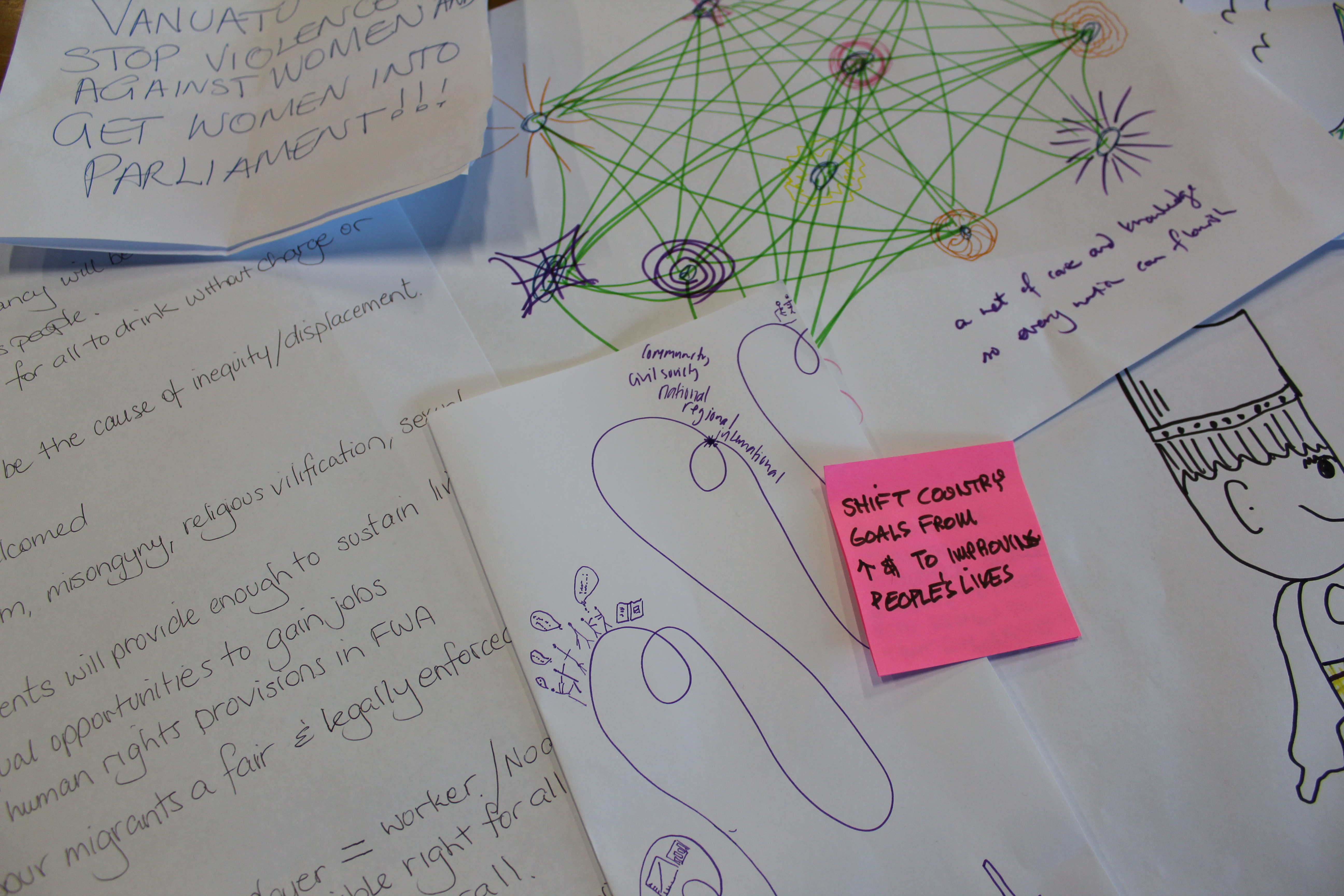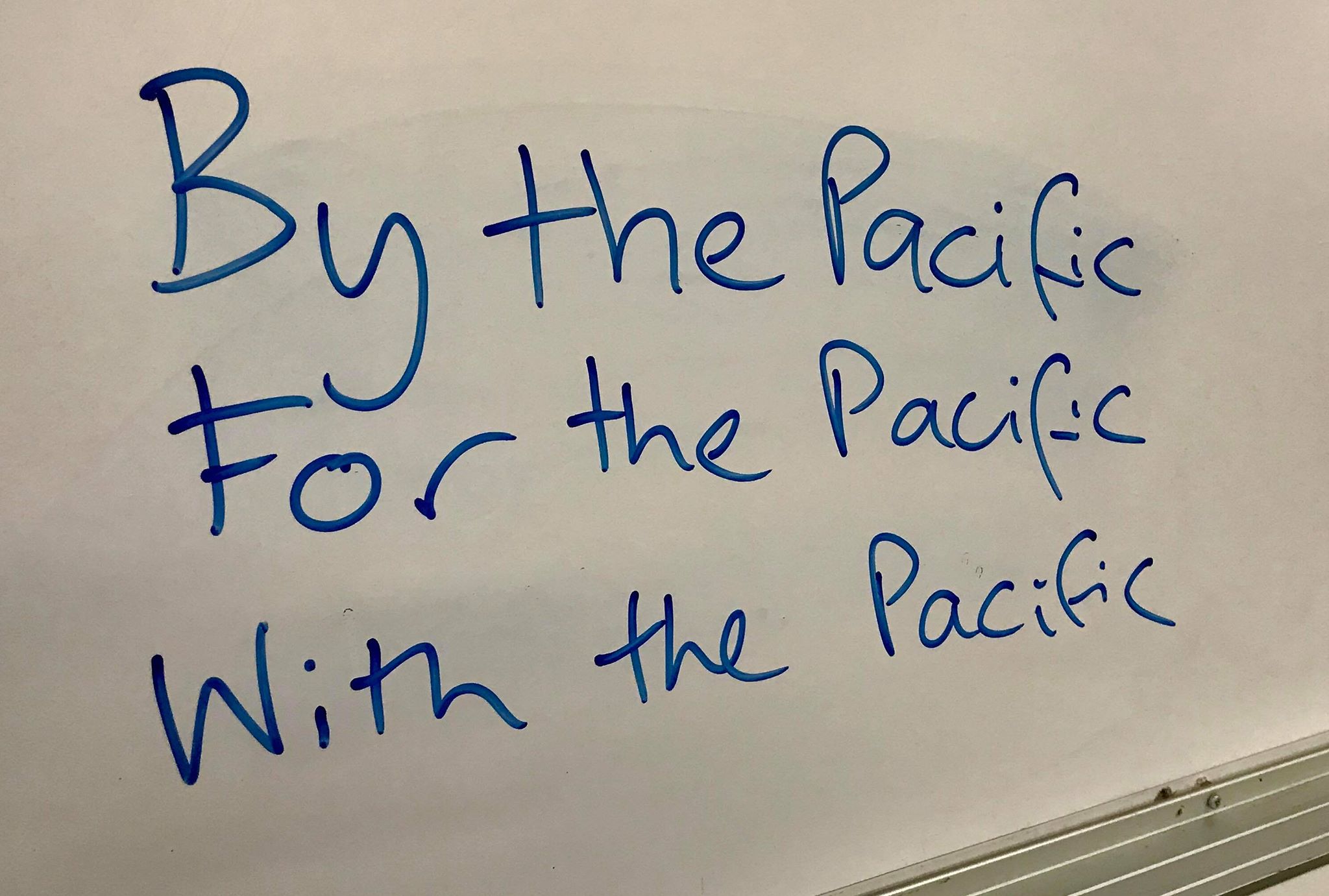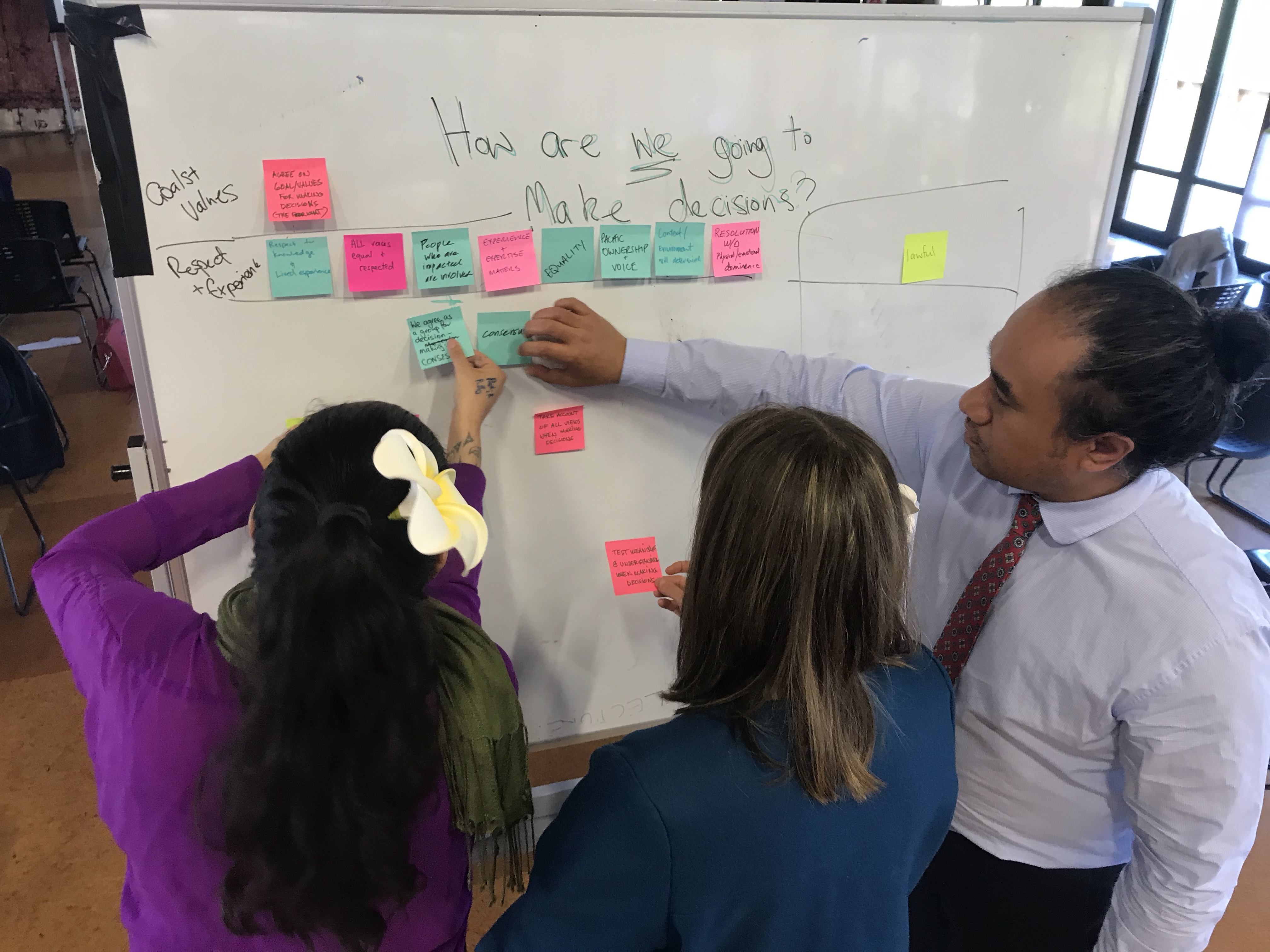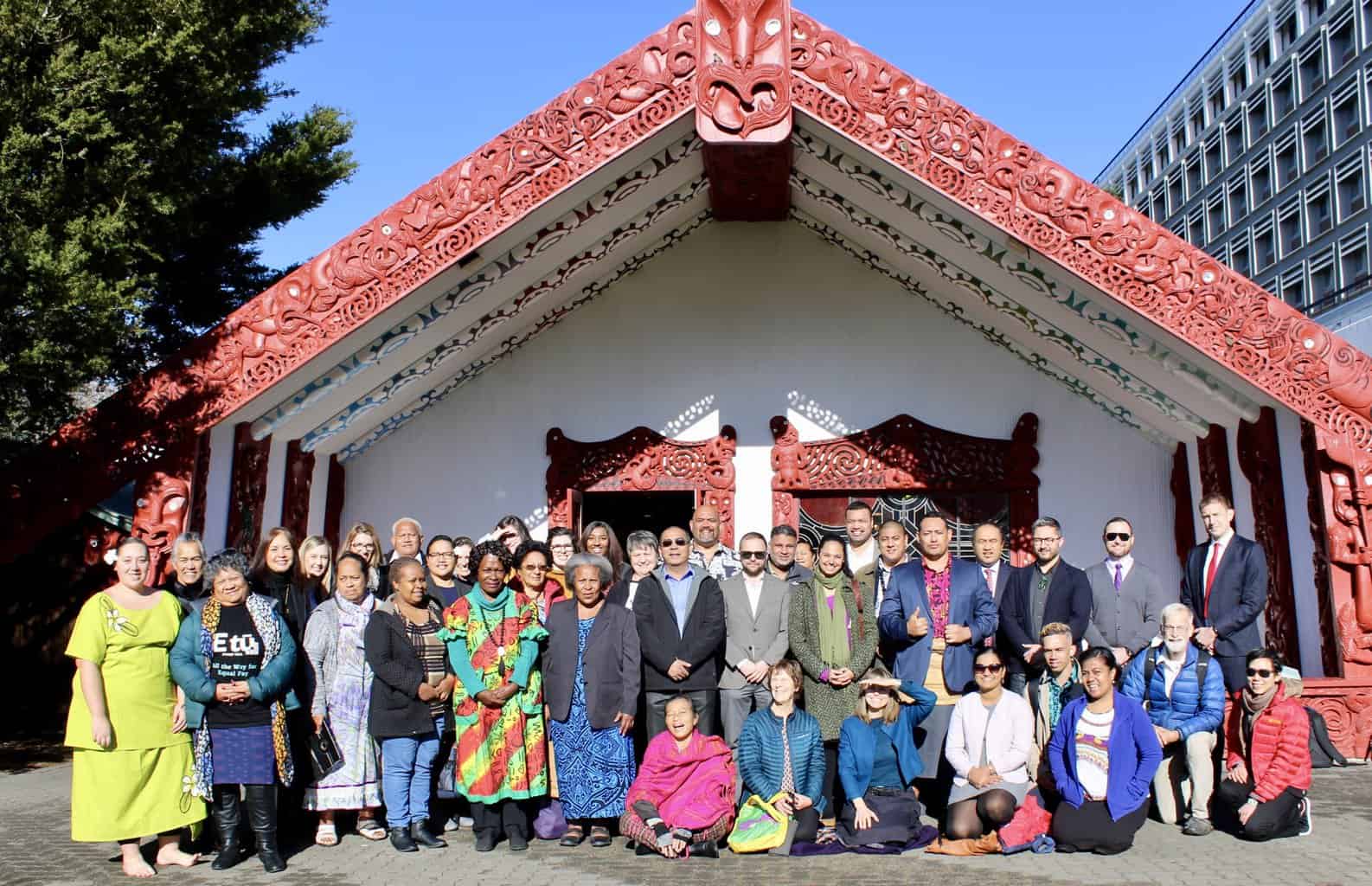‘By the Pacific, for the Pacific, with the Pacific’: reporting on our first Pacific region co-design workshop
In August, a group of 43 representatives from HRMI and the Pacific Region converged on Auckland for three days of connecting with one another, learning from one another, and exploring the potential for improving human rights in the region through expansion of HRMI’s human rights dataset.
In the spirit of HRMI’s core values of collaboration and innovation, HRMI has hosted four co-design workshops over the last four years, working to develop and improve tools for measuring and presenting the human rights performance of countries.
Our goal for HRMI is to help radically change how much respect countries all around the world give to people’s human rights. In this workshop, the focus was specifically on working towards this vision within the Pacific region.

This was HRMI’s first workshop focused on one region of the world, and the HRMI team was pleased to see strong regional themes coming through in the discussions.
One great thing to emerge from this was a complete change in the agenda for Day 3, with Pacific participants embracing the co-design approach to lead a talanoa circle which allowed for stronger connections between participants to be formed. A key theme that emerged was around the importance of including Pacific representatives in the collection and production of data for the region.
This fourth workshop, in Auckland, New Zealand, was focused on expanding HRMI’s work to 21 nations and territories in the Pacific region, namely: American Samoa, Cook Islands, Fiji, French Polynesia, Guam, Kiribati, Marshall Islands, Micronesia, Nauru, New Caledonia, Niue, Northern Mariana Islands, Palau, Papua New Guinea, Samoa, Solomon Islands, Tokelau, Tonga, Tuvalu, Vanuatu, and Wallis and Futuna.
The Pacific expansion is being funded by a grant from the New Zealand Aid programme of the Ministry of Foreign Affairs and Trade. The grant includes a clause guaranteeing HRMI’s independence in carrying out its work. Of the 21 nations, people from 14 were able to attend. The seven countries/territories not represented were: American Samoa, Federated States of Micronesia, French Polynesia, Marshall Islands, Northern Mariana Islands, Palau, and Wallis and Futuna.
A few of our participants were New Zealand or Australian based. We were also privileged enough to have four of our Australian participants who currently hold Pacific region monitoring roles (HRC, UNICEF, Aid, anti-corruption), one from Malaysia (CIVICUS researcher for Asia Pacific) and five others from NZ (two from the New Zealand Human Rights Commission, one from MFAT, and two others).
This was a unique gathering in relation to previous HRMI workshops. It was the first workshop to adopt a regional approach, including participants from 16 Pacific countries/territories. As a result, we were gifted with valuable insights that will contribute to HRMI’s ongoing development as well as potentially contribution to a more ‘Pacific specific’ application of HRMI in this region where participants shared about the distinctive characteristics of the Pacific region, including their distinctive challenges.

In a fitting co-design way, Day 3 sought to explore approaches to some of these Pacific-specific challenges by engaging with participants and adopting more traditional methodologies to glean insights. Participants designed and facilitated the talanoa process to create a more open and connected space to innovate.
The talanoa process contributed to several insights including:
- Data is about trust and confidence. Trust and confidence stem from sustained relationships that have started with a sturdy foundation. We will reflect on this point during HRMI’s future development and implementation particularly with respect to the Pacific region.
- The HRMI tool is valuable in its current form for the Pacific region. However, it could provide further added value to the region if there is a way to ‘tweak’ it for the Pacific.
- HRMI’s indicators are currently informed by United Nations conventions concerning economic, social, civil and political rights. However, the United Nations Declaration on the Rights of Indigenous Peoples is also very relevant to the Pacific region. Participants encouraged the further exploration of these rights for future indicator development.
- Participants invited us to reflect not only on the role of ‘culture’ in what we measure but also its role in how we design approaches to what we measure. These additional insights may prove valuable for regions in other parts of the world also.
Towards the end of the talanoa, the catch-phrase by the Pacific, for the Pacific, with the Pacific was mentioned and received so well it stayed up on the whiteboard for the rest of the day.

So where to from here then? The HRMI has learned a lot from the workshop, helping guide our next steps, which are:
- Appointing local champions of HRMI’s work in each country and territory, with the help of workshop participants. In some cases, a workshop participant may become the key HRMI person in their country; in others, participants may help us find someone else who can take on the role.
- Providing space for workshop participants to explore and design a new set of ‘Pacific Specific’ human rights metrics.
- Redrafting the expert survey based on the extensive feedback of our workshop participants.
- Making changes to the data website based on the user testing we carried out during the workshop.
- Continuing to build relationships with the human rights communities in each part of the Pacific Region.
Participants supported exploring how HRMI can be adapted in the Pacific region. One suggestion was a Pacific ‘module’ that could be co-designed from the beginning with Pacific people. We are also exploring how the regional themes that came out of the workshop overlap with the United Nations Declaration on the Rights of Indigenous Peoples.
We are continuing to talk with workshop participants to progress this thinking and explore its (exciting) potential!



